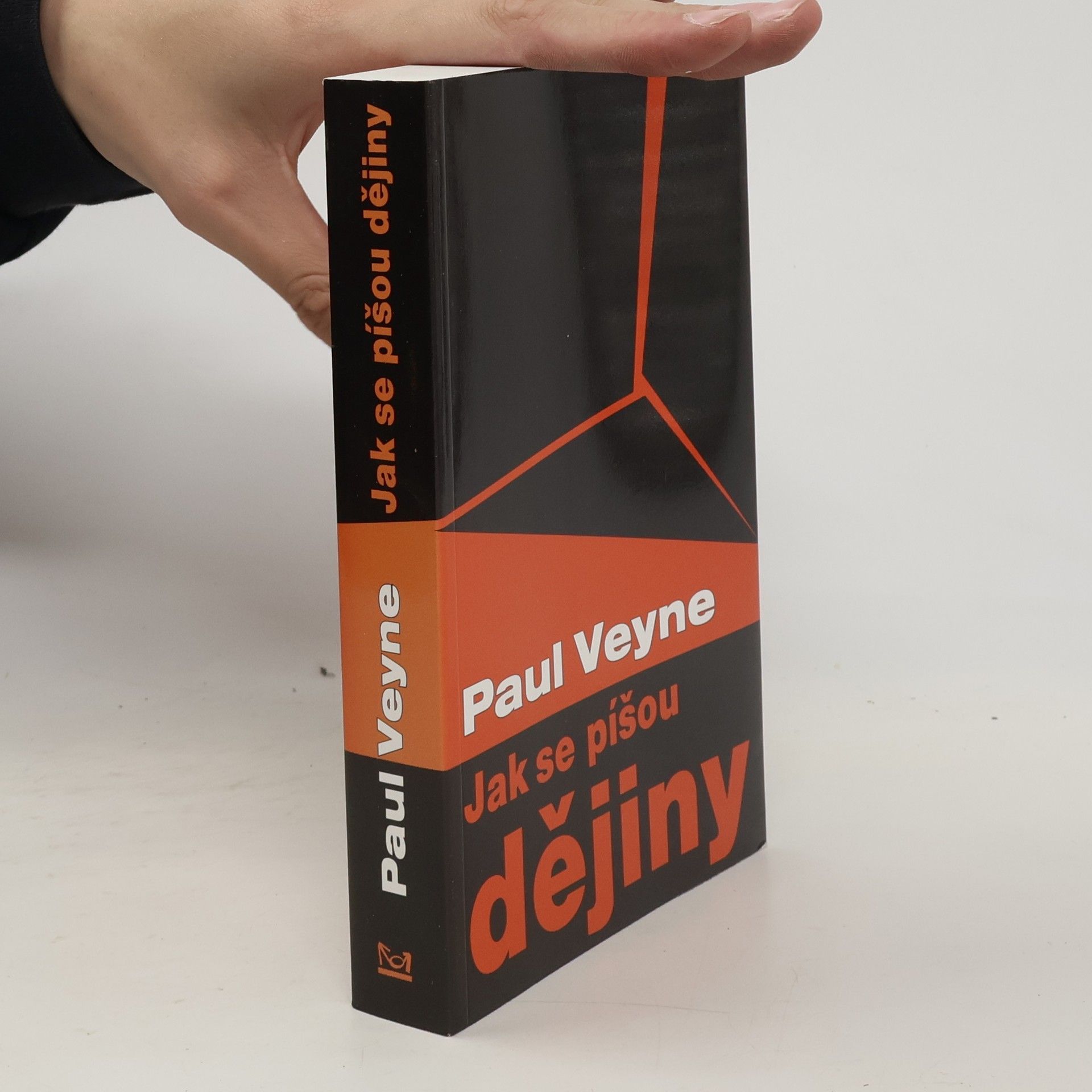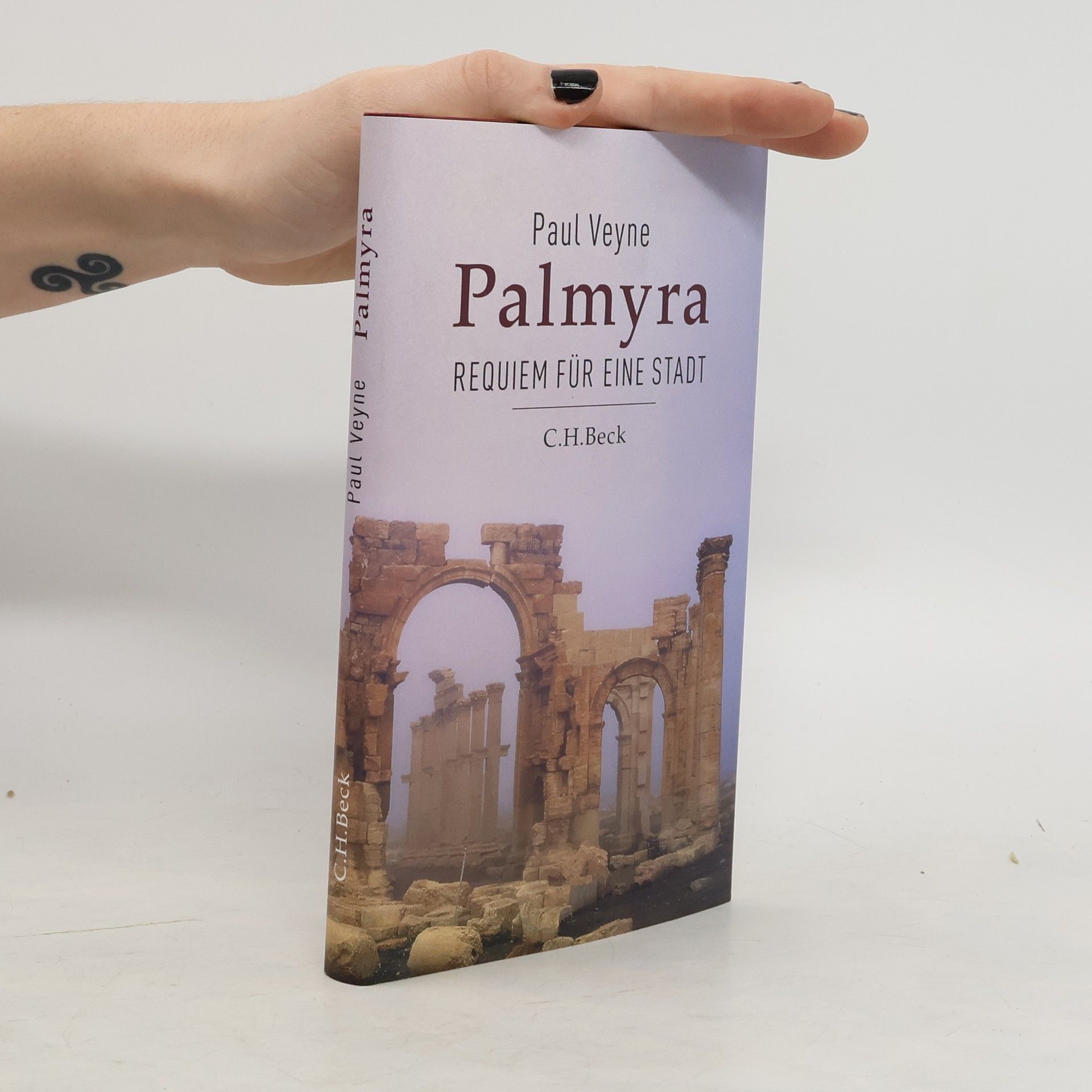"Seneca's philosophical writings remain our core source for Stoic thought, and their influence, always immense, continues to be felt. Veyne's authoritative exposition of Stoicism, and the interconnections between Seneca's life and thought, make this book ideal reading for anyone interested in Roman history and philosophy. This compact and compelling book is an introduction to the life and philosophy of one of the ancient world's greatest thinkers by one of the great historians of our own time."--Jacket.
Paul Veyne Boeken
Paul Veyne is een Franse historicus en een vooraanstaand specialist in de Romeinse Oudheid. Zijn vele publicaties, die ingaan op Romeinse sociologie en Griekse mythen, zijn geschreven met een vlotte en vreugdevolle pen, waardoor hij bekend is geworden bij het grote publiek. Veynes werk wordt geprezen om zijn meeslepende stijl en diepgaande analytische inzichten in de antieke wereld, en maakt complexe historische onderwerpen toegankelijk voor een breed publiek.

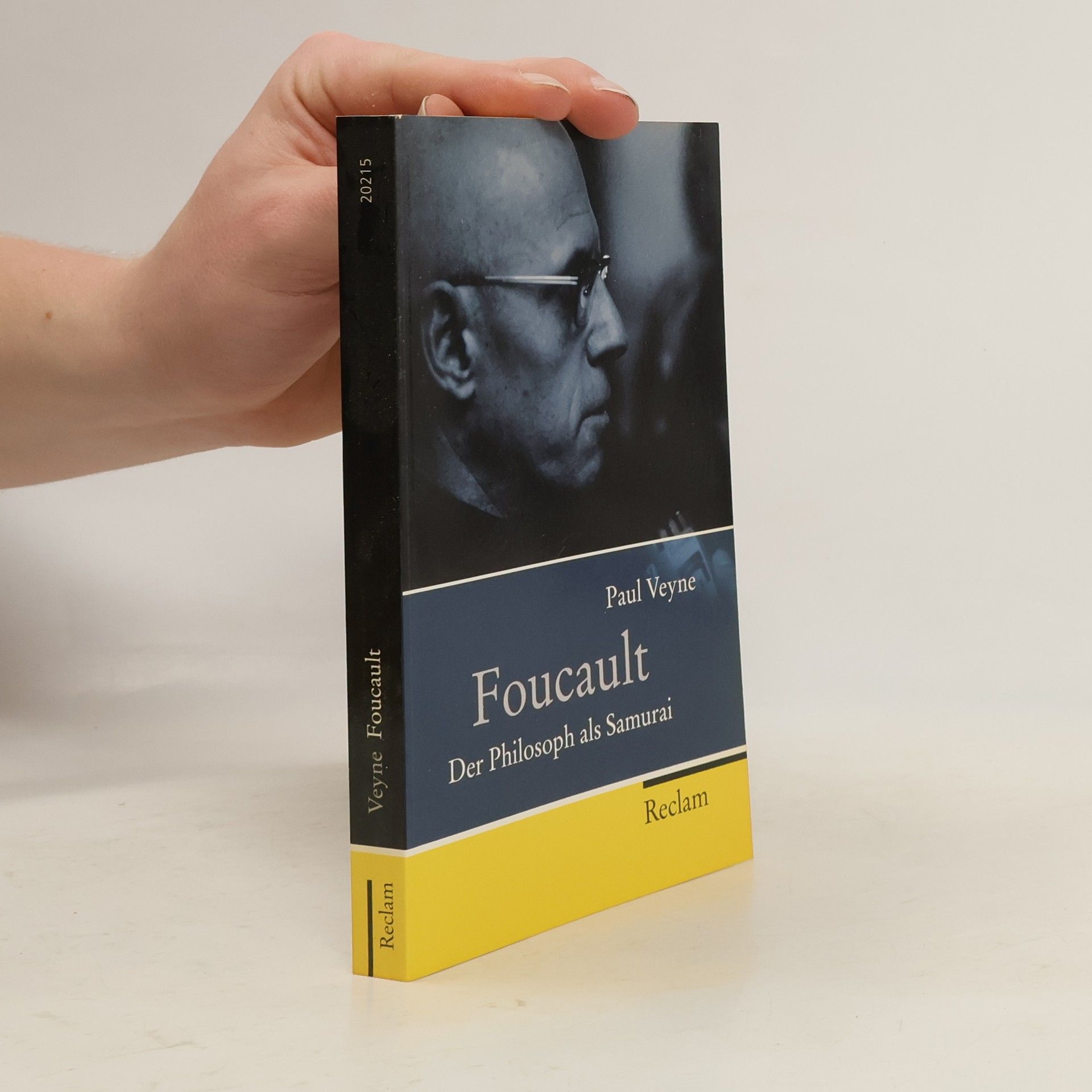
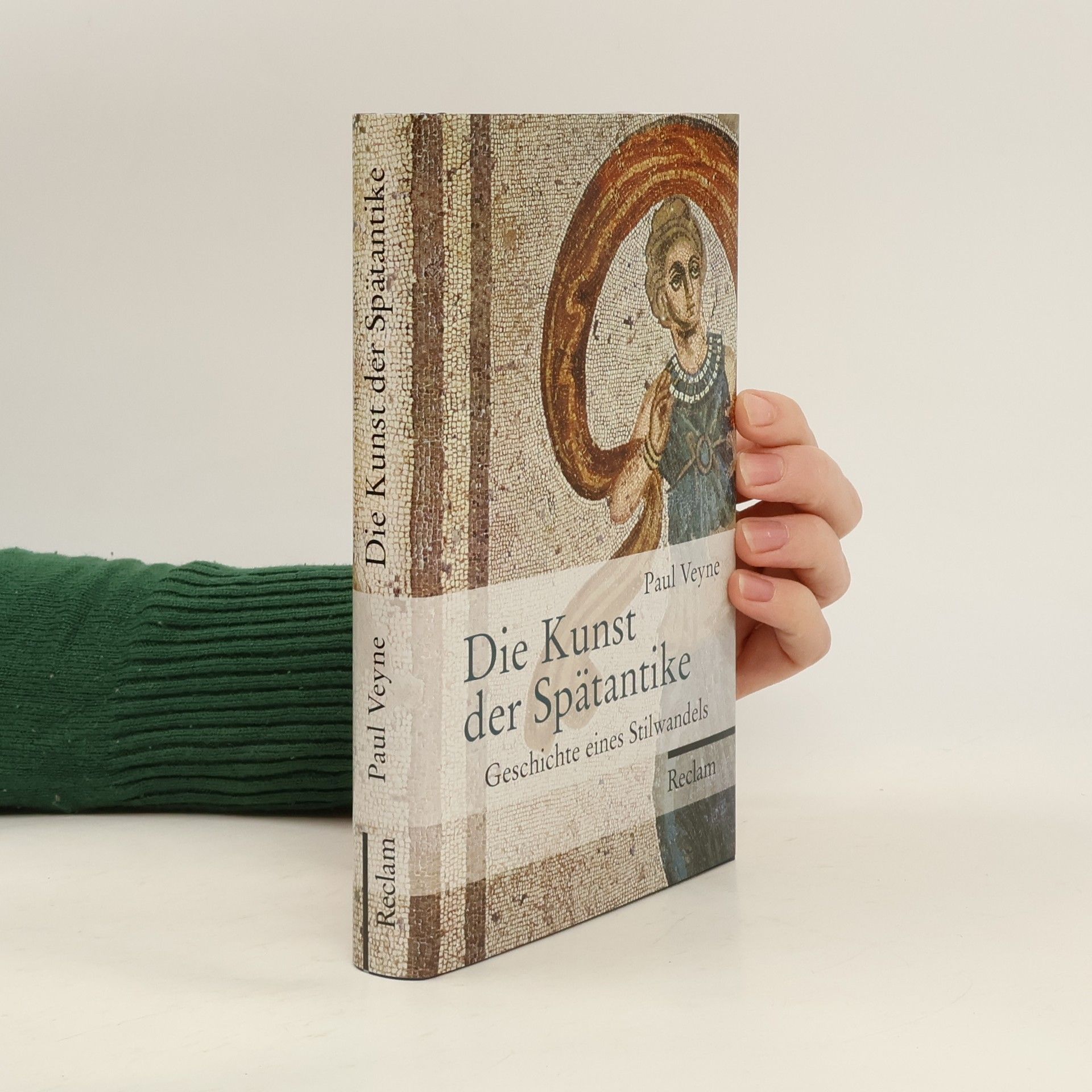
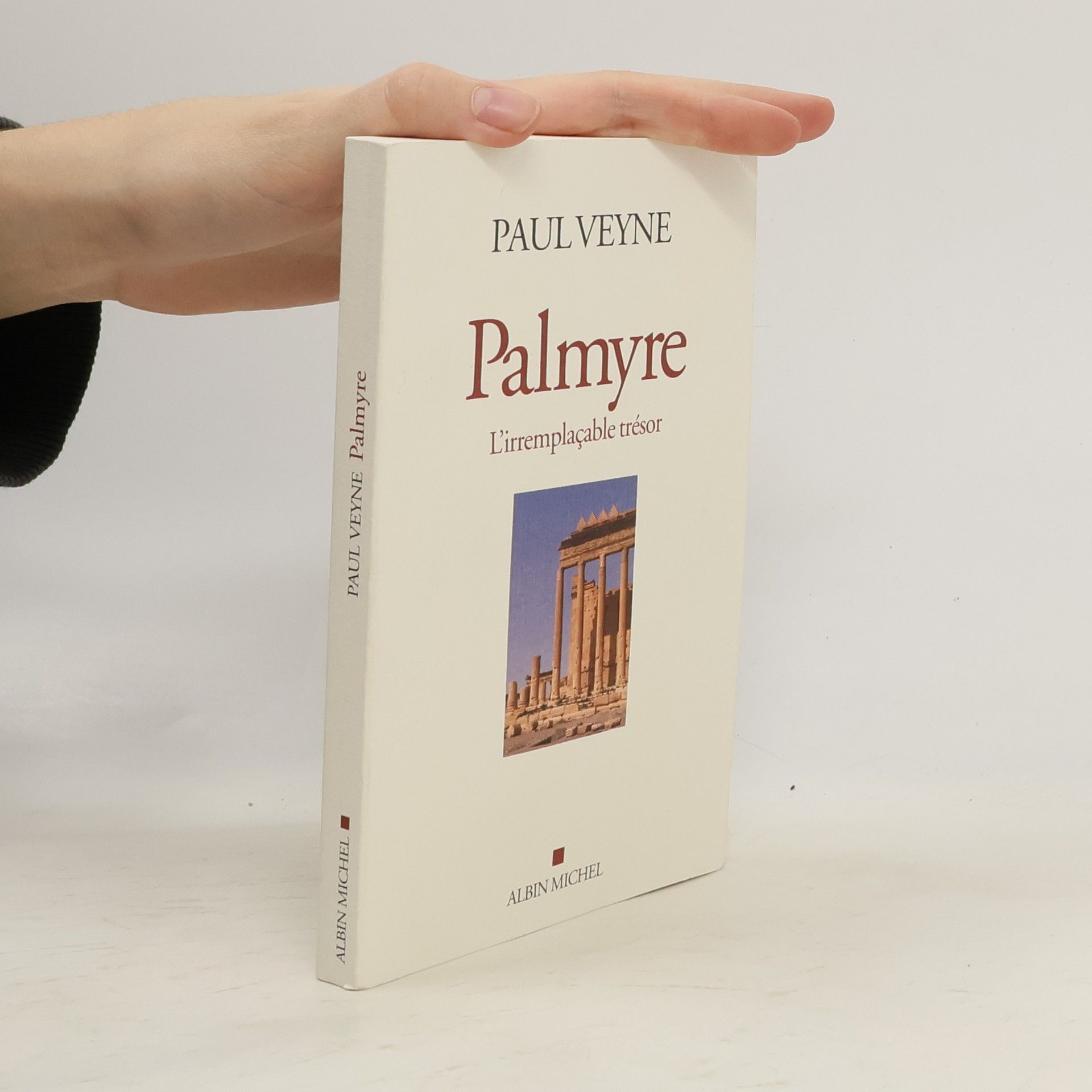

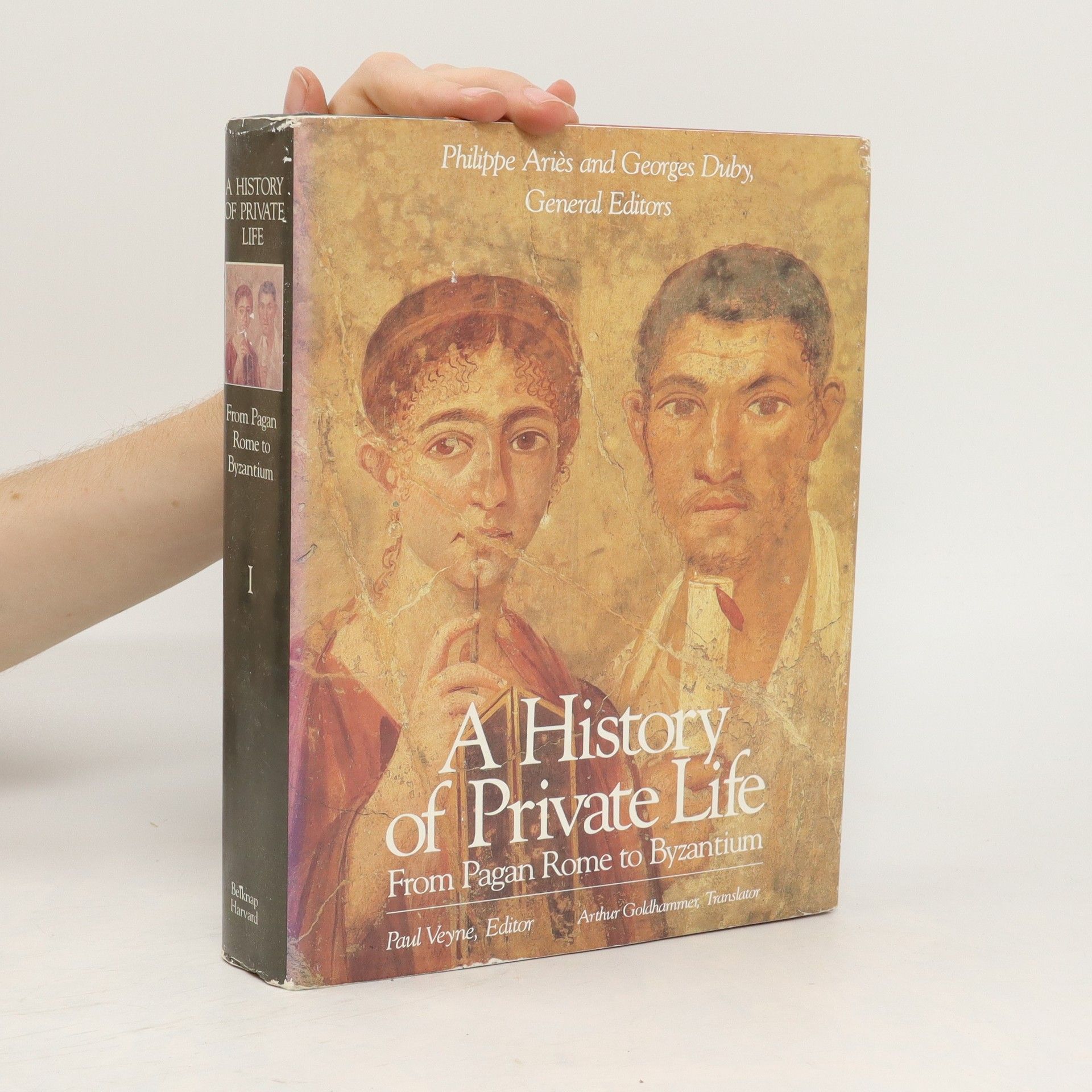
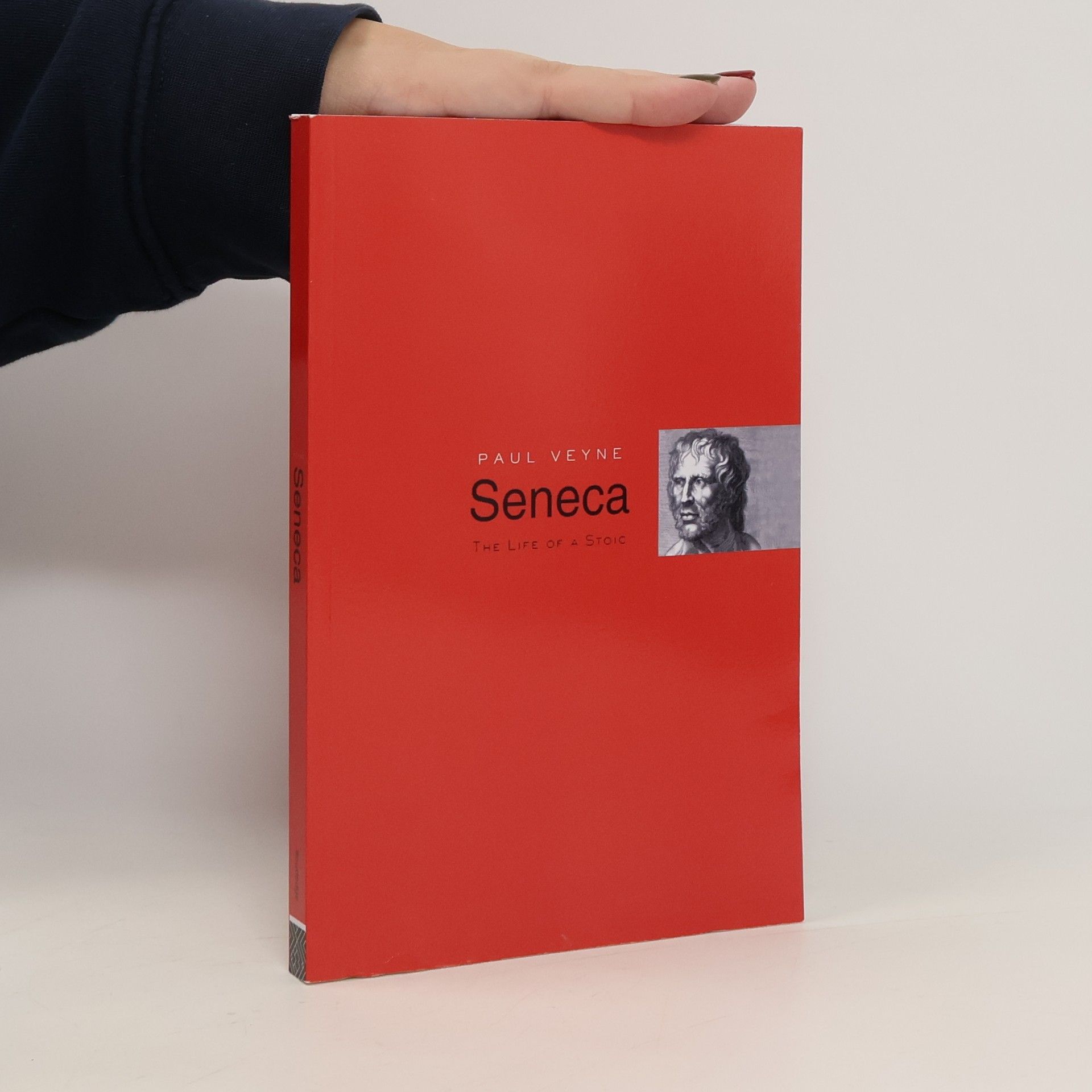
Jak a proč se římská říše ve čtvrtém století našeho letopočtu, tedy v době, kdy bylo její obyvatelstvo z devadesáti pěti procent pohanské a kdy byli křesťané většinovou společností vnímáni jako „nenormální“ lidé, christianizovala? Co přimělo římského císaře Konstantina Velikého, aby se jedné říjnové noci roku 312 rozhodl konvertovat ke křesťanství? Učinil tak na základě politického kalkulu, nebo z upřímného přesvědčení? Co tato událost pro další vývoj západního světa znamenala? Čím se nové náboženství od tradičního pohanství odlišovalo? A především: Lze oprávněně tvrdit, že Evropa má „křesťanské kořeny“, anebo je takové tvrzení pouhé klišé, které se při bližším zkoumání ukáže jako prázdná fráze? A jsme stále ještě křesťané, a pokud ano, v jakém smyslu? To jsou otázky, kterými se ve své rozsahem nevelké, leč myšlenkově hutné a intelektuálně podnětné knížce s názvem Jak se náš svět stal křesťanským zabývá jeden z největších znalců antického Řecka a Říma, renomovaný francouzský historik Paul Veyne. Jeho odpovědi, podložené desítky let systematického bádání a reflexe, mnohé překvapí… Kniha Jak se náš svět stal křesťanským (2007) získala Gobertovu cenu (Grand prix Gobert), již každoročně udílí Francouzská akademie, jakož i ocenění Senátu (Prix du Sénat du livre dhistoire). Časopisy LIRE a Le Point ji zařadily mezi dvacítku nejlepších knih roku 2007.
Palmyre, l'irremplaçable trésor
- 144bladzijden
- 6 uur lezen
« Ayant eu pour métier l'étude de l'Antiquité gréco-romaine, je n'ai cessé de rencontrer Palmyre sur mon chemin professionnel. Avec la destruction de Palmyre par l'organisation terroriste Daech, tout un pan de notre culture et mon sujet d'étude viennent brutalement de voler en éclats. Malgré mon âge avancé, c'était mon devoir d'ancien professeur et d'être humain de dire ma stupéfaction devant ce saccage incompréhensible et d'esquisser un portrait de ce que fut la splendeur de Palmyre qu'on ne peut plus désormais connaître qu'à travers les livres. » C'est cette histoire de la « Venise du désert » que nous peint Paul Veyne ; avec lui, nous découvrons cet immense vestige d'un monde aboli.
Was um Himmels Willen ist bloß passiert - fragt man sich, wenn man mit wachen Augen durch römische Antikenmuseen läuft. Wieso verschwindet plötzlich und auf nimmerwiedersehen in spätrömischer Zeit der schöne Naturalismus, der aus Kaisern, Konsuln, deren Frauen und Kindern Menschen wie du und ich machte, nur ein wenig bigger than life, fast wie im Fernsehen? Was war nur der Grund für die Invasion des Vergröberten, des Karikaturhaften, des Abstrahierten, des Grotesken, des Simplifizierten überall in der spätantiken Kunst? Die Barbaren? Das Christentum? Nichts davon, sagt der große französische Althistoriker Paul Veyne, kein äußerer Grund, vielmehr eine der Kunst innewohnende Notwendigkeit ließ den Stil vom Hellenismus ins Mittelalter stürzen. Eine feinfühlige, genaue und gerechte Neuinterpretation der „Mutter aller Dekadenzepochen“.
Das zu Foucaults 25. Todestag erschienene großartige Denkmal, das Paul Veyne seinem Freund gesetzt hat, lässt sowohl Foucaults Denken als auch seine Person auf faszinierende Weise lebendig werden.
Wie und warum wurde aus dem heidnischen römischen Reich ein christliches? Wie war es möglich, daß die Christen, eben noch blutig verfolgt und als Staatsfeinde gebrandmarkt, plötzlich, am 28. Oktober 312, den römischen Kaiser selbst in ihren Reihen begrüßen durften und danach innerhalb weniger Generationen das Christentum Staatsreligion wurde? Ein kluger, unterhaltsamer Essay über eine Revolution im 4. Jahrhundert, die aus einem vielfältig heidnischen Europa ein christliches machte. Was wäre aus der kleinen unterdrückten christlichen Sekte geworden, wenn Kaiser Konstantin nicht diese Religion angenommen hätte? Wäre alles anders gekommen? Gäbe es heute ein Europa, das sich gerne als christlich präsentiert, wäre es säkularer, wäre es islamisch oder heidnisch? Die Fragen, die der große französische Althistoriker Paul Veyne aufgreift, betreffen ein für Europa entscheidendes Jahrhundert: Was machte den christlichen Glauben für den Kaiser so attraktiv? Welche Art von Avantgarde repräsentierten die Christen für ihn? Welche Veränderung durchlief der schon vorhandene heidnische Antisemitismus? Welche Rolle spielte die Idee des Monotheismus? Und nicht zuletzt: Was bedeutete die Frage nach dem "wahren" Glauben, die die Christen mit solcher Vehemenz stellten?
Kniha Jak se píšou dějiny je především rozsáhlou demystifikací iluze, že historiografie je přísná a exaktní věda, odkrývající zákonitosti dějin. Text vznikl původně jako reakce na dobovou módu kvantitativní historie, spjatou zejména s představiteli francouzského nového dějepisectví z okruhu takzvané školy Annales, ovlivňované v té době neméně módním strukturalismem. Kvantitativní historie ve snaze vydestilovat ze zlomkovitosti pramenů objektivní fakta odvrací historika od jeho vlastní práce. Ta podle Paula Veyna spočívá, jak napovídá už název knihy, především v obnoveném uvažování o historii jako o určitém způsobu psaní, se všemi jeho rétorickými i poetickými rozměry. Ohlašuje se tu okamžik „návratu k vyprávění“. Historie není věda, je to snaha o syntézu izolovaných, chaotických a řídce rozmístěných faktů pomocí narativní explikace, tedy jak říká Paul Veyne, je to „látání děr“ ve struktuře dochovaných stop minulosti. Historie náleží světu náhody a neuspořádanosti, a každá spojitost, která byla a posteriori ustavena historiky, je pouze provizorní rekonstrukcí dějin.
Palmyra
- 127bladzijden
- 5 uur lezen
Mit Khaled al-Asaad hat die Welt einen bedeutenden Archäologen verloren: Am 18. August 2015 wurde er im Alter von 81 Jahren von IS-Anhängern ermordet, nachdem er 40 Jahre lang Palmyra erforscht und bewahrt hatte. Der Baaltempel, das Herzstück Palmyras und ein unersetzliches Denkmal römisch-mesopotamischer Kultur, wurde von Islamisten zerstört. Paul Veyne, ein führender Experte der französischen Antikenforschung, widmet sich in seinem Werk der einzigartigen antiken Stadt Palmyra. Diese Metropole, bekannt für ihre Tempel, Tore, Theater, Säulenstraßen, Nekropolen und Palmengärten, war die Königin der Wüste. Veyne zeigt auf, warum dieser barbarische Doppelmord an al-Asaad und einem Weltkulturerbe verübt wurde: Palmyra zog den Hass der Täter auf sich, weil es ein gemeinsames Haus vieler Kulturen und ihrer Götter war – der Aramäer, Mesopotamier, Ägypter, Perser, Griechen, Römer und Araber. Es war ein Beispiel für Einheit in der Vielfalt, das in der geistigen Monokultur der Fundamentalisten keinen Platz hat. Die Erinnerung an Palmyra, die Paul Veyne stiftet, ist eine Hymne an das Licht in einem dunklen Zeitalter.
Et dans l'éternité je ne m'ennuierai pas
- 259bladzijden
- 10 uur lezen
"Né en 1930 dans le Midi de la France, dans un milieu presque populaire, je suis professeur honoraire d'histoire romaine au Collège de France. Je me suis marié trois fois, comme Cicéron, César et Ovide. J'ai été membre du Parti communiste dans ma jeunesse et j'ai écrit des livres sur des sujets divers. Je vis depuis longtemps dans un village de Provence, au pied du mont Ventoux." Souvenirs d'une traversée du siècle, promenade dans l'Antiquité, réflexions profondes et anecdotes savoureuses, souvent émouvantes, récits d'expériences personnelles parfois douloureuses émaillent ce beau livre qui est comme l'aboutissement d'une vie hors norme. Paul Veyne, le grand historien de Rome qui a bousculé tant d'idées reçues, s'y montre tour à tour facétieux, grave, indifférent à l'opinion d'autrui. Avide de culture et de poésie, détaché du monde académique, il préfère à la société des hommes la contemplation des nuages.

